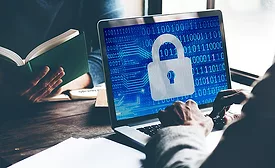Home » Keywords: » cybersecurity litigation
Items Tagged with 'cybersecurity litigation'
ARTICLES
Cybersecurity
The Hunt for Cybersecurity Solutions at Black Hat 2014
“Freedom, Security, Convenience: Choose Two”
October 20, 2014
Why Cybersecurity is a Business Necessity
For well over a decade, CEOs have been relegating the operational, legal, reputational and competitive risks associated with cybersecurity to those responsible for Information Technology.
March 1, 2014
Sign-up to receive top management & result-driven techniques in the industry.
Join over 20,000+ industry leaders who receive our premium content.
SIGN UP TODAY!Copyright ©2025. All Rights Reserved BNP Media.
Design, CMS, Hosting & Web Development :: ePublishing



